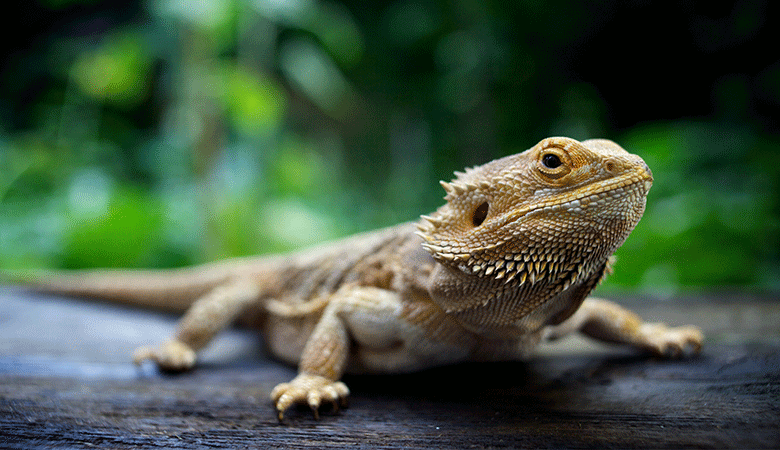Top 10 most common pet reptiles
Written by Mara |
Reptiles have become increasingly popular as pets in recent years. They are fascinating, often relatively calm, and require very different care compared to dogs or cats. Whether you are just starting out or already have experience, there are reptiles that are suitable for both beginners and more advanced keepers. In this blog, we list the top 10 most commonly kept reptiles as pets, with a short explanation for each species.

1. Bearded Dragon (Pogona vitticeps)
The bearded dragon is perhaps the most popular lizard among enthusiasts. They are friendly, relatively easy to tame, and have a calm temperament. They are active during the day and enjoy basking under a heat lamp. Keep in mind: they require a spacious terrarium and UVB lighting.
Pros:
- Suitable for beginners
- Fun behaviour
- Interactive
2. Leopard Gecko (Eublepharis macularius)
This small, nocturnal gecko is ideal for beginners. They are easy to handle, become tame, and have relatively few housing requirements compared to other reptiles. However, they are nocturnal and mainly active in the evening.
Pros:
- Easy to care for
- Suitable for beginners
3. Corn Snake (Pantherophis guttatus)
The corn snake is one of the most popular pet snakes. They are non-venomous, easy to handle, and available in many colour variations. Corn snakes are curious, active, and very suitable for people with little or no experience with snakes. They are, however, escape artists, so you’ll need a secure enclosure.
Pros:
- Calm temperament
- Low-maintenance care
4. Hermann’s Tortoise (Testudo hermanni)
This tortoise is popular because of its calm nature and long lifespan. They can be kept outdoors during summer and are active during the day. They do require UVB lighting and a calcium-rich diet.
Pros:
- Friendly and slow
- Suitable for outdoor enclosures
5. Ball Python (Python regius)
The ball python is a somewhat larger, but very calm snake species. They like to curl up and rarely show aggression. Perfect for those with some snake experience. They can, however, be picky eaters and need a stable temperature in their enclosure.
Pros:
- Calm nature
- Impressive appearance
6. Blue-Tongued Skink (Tiliqua spp.)
This lizard stands out with its blue tongue and sturdy build. They are curious, intelligent, and relatively easy to handle. However, they do require a spacious enclosure and a varied diet.
Pros:
- Easy to handle
- Gentle temperament
7. Dwarf Gecko / Lygodactylus Gecko (Lygodactylus spp.)
These small gecko species are fun to observe in a tropical terrarium. They are less suitable for handling, as they are sensitive to stress, but fascinating to watch.
Pros:
- Active behaviour
- Small size
8. Red-Eared Slider (Trachemys scripta elegans)
The red-eared slider is a well-known aquatic turtle that used to be very popular. They require both a water and land section in their enclosure and can grow quite large and live a long time. Today, they are banned from trade in the EU (invasive species). Only older animals may still be kept.
Pros:
- Active
- Fun to observe
9. Day Gecko (Phelsuma spp.)
This brightly coloured, tropical gecko is active during the day and stunning to look at. They are more sensitive to care requirements, but very rewarding. Due to their delicate skin, they should not be handled.
Pros:
- Colourful
- Active during the day
10. Milk Snake / Kingsnake (Lampropeltis spp.)
These beautiful snakes have striking colours and are generally friendly and curious. They resemble venomous coral snakes but are harmless. Ensure a securely closed enclosure!
Pros:
- Attractive and active
- Good for beginners
Important Tips for (Future) Reptile Owners
There are some general points to keep in mind before choosing a reptile as a pet:
- Do your research in advance: each species has specific needs regarding temperature, humidity, diet, and housing.
- Check legislation: some species fall under CITES or may become restricted in the future through the positive list for reptiles.
- Provide proper housing and lighting: UVB and heat are essential for many reptile species.
- Consult a reptile vet for health issues: not every veterinarian treats reptiles.




